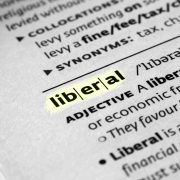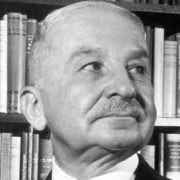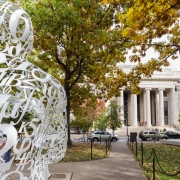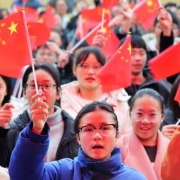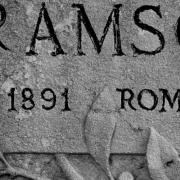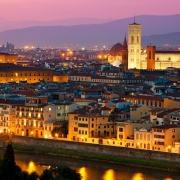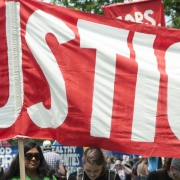Anti-Marxist liberals have labored under numerous disadvantages in the recent struggles to maintain control of liberal organizations. One is that they are often not confident they can use the term “Marxist” in good faith to describe those seeking to overthrow them. This is because their tormentors do not follow the precedent of the Communist Party, the Nazis, and various other political movements that branded themselves using a particular party name and issued an explicit manifesto to define it. Instead, they disorient their opponents by referring to their beliefs with a shifting vocabulary of terms, including “the Left,” “Progressivism,” “Social Justice,” “Anti-Racism,” “Anti-Fascism,” “Black Lives Matter,” “Critical Race Theory,” “Identity Politics,” “Political Correctness,” “Wokeness,” and more. When liberals try to use these terms they often find themselves deplored for not using them correctly, and this itself becomes a weapon in the hands of those who wish to humiliate and ultimately destroy them.
The best way to escape this trap is to recognize the movement presently seeking to overthrow liberalism for what it is: an updated version of Marxism. I do not say this to disparage anyone. I say this because it is true. And because recognizing this truth will help us understand what we are facing.
The new Marxists do not use the technical jargon that was devised by 19th-century Communists. They don’t talk about the bourgeoisie, proletariat, class struggle, alienation of labor, commodity fetishism, and the rest, and in fact they have developed their own jargon tailored to present circumstances in America, Britain, and elsewhere. Nevertheless, their politics are based on Marx’s framework for critiquing liberalism (what Marx calls the “ideology of the bourgeoisie”) and overthrowing it. We can describe Marx’s political framework as follows:
1. Oppressor and oppressed
Marx argues that, as an empirical matter, people invariably form themselves into cohesive groups (he calls them classes), which exploit one another to the extent they are able. A liberal political order is no different in this from any other, and it tends toward two classes, one of which owns and controls pretty much everything (the oppressor); while the other is exploited, and the fruit of its labor appropriated, so that it does not advance and, in fact, remains forever enslaved (the oppressed). In addition, Marx sees the state itself, its laws and its mechanisms of enforcement, as a tool that the oppressor class uses to keep the regime of oppression in place and to assist in carrying out this work.
2. False consciousness
Marx recognizes that the liberal businessmen, politicians, lawyers, and intellectuals who keep this system in place are unaware that they are the oppressors, and that what they think of as progress has only established new conditions of oppression. Indeed, even the working class may not know that they are exploited and oppressed. This is because they all think in terms of liberal categories (e.g., the individual’s right to freely sell his labor) which obscure the systematic oppression that is taking place. This ignorance of the fact that one is an oppressor or oppressed is called the ruling ideology (Engels later coined the phrase false consciousness to describe it), and it is only overcome when one is awakened to what is happening and learns to recognize reality using true categories.
3. Revolutionary reconstitution of society
Marx suggests that, historically, oppressed classes have materially improved their conditions only through a revolutionary reconstitution of society at large—that is, through the destruction of the oppressor class, and of the social norms and ideas that hold the regime of systematic oppression in place. He even specifies that liberals will supply the oppressed with the tools needed to overthrow them. There is a period of “more or less veiled civil war, raging within existing society, up to the point where that war breaks out into open revolution” and the “violent overthrow” of the liberal oppressors. At this point, the oppressed seize control of the state.
4. Total disappearance of class antagonisms
Marx promises that after the oppressed underclass takes control of the state, the exploitation of individuals by other individuals will be “put to an end” and the antagonism between classes of individuals will totally disappear. How this is to be done is not specified.
Marxist political theories have undergone much development and elaboration over nearly two centuries. The story of how “neo-Marxism” emerged after the First World War in the writings of the Frankfurt School and Antonio Gramsci has been frequently told, and academics will have their hands full for many years to come arguing over how much influence was exerted on various successor movements by Michel Foucault, post-modernism, and more. But for present purposes, this level of detail is not necessary, and I will use the term “Marxist” in a broad sense to refer to any political or intellectual movement that is built upon Marx’s general framework as I’ve just described it. This includes the “Progressive” or “Anti-Racism” movement now advancing toward the conquest of liberalism in America and Britain. This movement uses racialist categories such as whites and people of color to describe the oppressors and the oppressed in our day. But it relies entirely on Marx’s general framework for its critique of liberalism and for its plan of action against the liberal political order. It is simply an updated Marxism.
